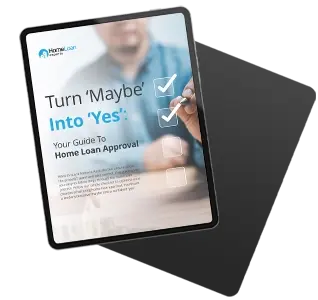Table of Contents
- When Does A Cooling Off Period Apply?
- How Long Does A Cooling Off Period Last?
- When Does The Cooling Off Period Begin?
- Are Cooling Off Periods Mandatory?
- Reasons To Withdraw During The Cooling Off Period
- Withdrawing An Offer On A House After The Cooling Off Period
- What Is A Finance Clause?
- How Does A Finance Clause Work?
- Steps To Ensure Lender Approval
A cooling off period is a period of time after signing a contract of sale during which a buyer can withdraw from the agreement without incurring significant penalties. This period typically lasts between 2 to 5 business days and gives buyers a chance to reconsider their decision if their circumstances change.
When Does A Cooling Off Period Apply?
A cooling off period is generally required only for private property sales, although houses sold by auction may have a cooling off period inserted into the contract of sale if the seller and buyer both agree to it. A cooling off period is usually available only to the buyer and not the seller.
How Long Does A Cooling Off Period Last?
The length of a cooling of period varies among states and territories; it can range from 2-5 business days. Tasmania and Western Australia don’t require a cooling off period but they can still be written into contracts of sale there. A buyer will need to pay a penalty for withdrawing from a contract of sale within the cooling off period. This can range from 0.2% of the total selling price of the property down to a deposit of $100. The penalties for breaking a contract after the cooling off period are much higher.
| State/Territory | Cooling Off Period | Penalty(% of total selling price of property) |
|---|---|---|
| ACT | Five Business Days | 0.25% |
| NSW | Five Business Days | 0.25% |
| NT | Four Business Days (if buyer is not represented by a solicitor or conveyancer) | 0% |
| Queensland | Five Business Days | 0.25% |
| SA | Two Business Days | Deposit forfeited (up to $100) |
| Victoria | Three Business Days | 0.2% |
| Tasmania | Not required (May add clause in contract) | 100% |
| WA | Not required (May add clause in contract) | 100% |
When Does The Cooling Off Period Begin?
A cooling off period usually starts on the day the buyer receives the copy of the contract of sale, after it has been signed by both parties. It ends at 5pm on the deadline day, as mandated in the state or territory or agreed upon in the contract of sale. Sundays and public holidays are not counted as part of the cooling off period.
Fast Track to Approval: Your Home Loan Checklist
A well-curated checklist to improve your chances of a home loan approval.

Disclaimer: Over the next few days, you’ll receive additional guides to help you on your homebuying journey. Occasionally, you’ll receive carefully curated home-buying tips, offers & schemes, and news articles. You can unsubscribe any time you want. View our Privacy Policy
Are Cooling Off Periods Mandatory?
Cooling Off Periods are mandatory but they can be waived. A buyer can waive the cooling off period by providing the seller with a ‘66W Certificate’. Buyers provide these to signal they are keen on a property and would like to secure it before any other buyers enter negotiations. A buyer may also increase or decrease the cooling off period by written agreement with the seller.
Reasons To Withdraw During The Cooling Off Period
There are multiple reasons why buyers withdraw from the contract of sale during the cooling off period. These reasons include:
- If the lender does not approve the loan
- Change in financial position
- If the property fails inspection.
- If a better listing on the property market comes up.
- If the buyer has a change of heart. This can be due to emotional issues, financial changes, and a host of other factors.
Withdrawing An Offer On A House After The Cooling Off Period
It is certainly possible for the buyer to withdraw even after the cooling off period is over. However, this usually results in hefty penalties and fines. The buyer will have to compensate the seller for legal fees and other expenses. In some cases, the buyer might even need to forfeit the entire deposit.
What Is A Finance Clause?
A finance clause works similarly to a cooling off period. A buyer can withdraw from an offer without any reason during the cooling off period. With a finance clause, the buyer can withdraw from the contract of sale if unable to secure a loan. All states and territories do not require a finance clause; it is up to the buyer to include one in the contract of sale if desired.
How Does A Finance Clause Work?
A finance clause can be for seven days, 14 days or 21 days. It is even possible to negotiate a longer time period. The clause is activated as soon as the seller hands over the copy of the contract of sale to the buyer with the signature of both parties. The clause ends at 5pm on the day stipulated in the clause.
Steps To Ensure Lender Approval
A buyer can get a pre-approval to avoid getting rejected by the lender. A pre-approval gives the buyer some security about funding before entering negotiations with the seller and also helps the buyer gauge their budget. Securing a pre-approval signals to the seller a strong desire to secure the property.
Our team of specialist mortgage brokers can help guide you through setting up a cooling off period or a financial clause. We can also help you secure a pre-approval. Contact us at 1300 889 743 or fill in our online assessment form and we will contact you.
